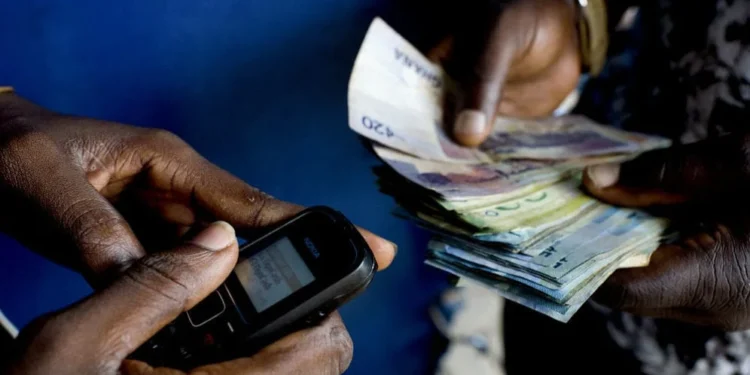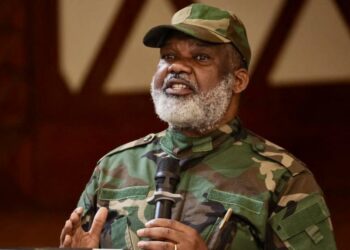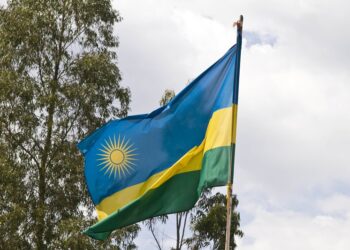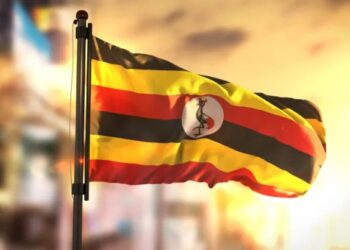Mobile money is used to buy goods and services, save money, and send money to friends and family—both at home and abroad. Globally, at least $4.6 billion flows through mobile money accounts daily for a growing range of use cases. Leading this market growth is Sub-Saharan Africa, with a total of 1.1 billion registered accounts and more than 280 million active 30-day accounts, as recorded at the end of 2024 (GSMA, 2025). The spread of mobile money accounts has created new opportunities to better serve women, poor people, and other groups traditionally excluded from the formal financial system. In some sub-Saharan African economies—such as Cote d’Ivoire, Gabon, Kenya, Senegal, Uganda, and Zimbabwe—the gender gap in mobile money account ownership is significantly smaller than the gap in ownership of accounts at financial institutions such as banks. These results are encouraging but not conclusive on their own. As more economies expand the use of mobile money and new mobile money operators enter the market, regulation can play an important role in ensuring that women and the poor are better served.
At the end of 2019, 477 million people in Sub-Saharan Africa subscribed to mobile services, accounting for 45% of the population. The mobile market in the region will reach several important milestones over the next five years: half a billion mobile subscribers in 2021, 1 billion mobile connections in 2024, and 50% subscriber penetration by 2025. These achievements will be underpinned by operators’ continued investment in network infrastructure. Despite the economic uncertainty brought about by the Covid-19 crisis, operators in the region will invest $52 billion in infrastructure rollouts between 2019 and 2025. In the mobile money ecosystem, the leadership of multinationals and mobile operators remains undeniable. The latter use their pioneering status, their advantages in terms of connectivity and proximity networks, as well as offensive tactics to divest themselves of partnerships with banking institutions. At the launch of mobile money, regulations in favor of banks underwent several adjustments, to the point of facilitating the creation of a mobile bank: Orange Bank Africa. Statistics show that the mobile money market remains monopolistic in the sub-Saharan region, with an oligopolistic trend since the arrival of financial technology companies (FinTech) such as Wave.
Mobile money is effectively addressing these concerns. Backed by 2G and 3G networks that reach over 80% of the region’s population, such services offer simplified onboarding processes and access through Unstructured Supplementary Service Data (USSD), a coded mobile communication protocol that relies on text messages rather than internet connectivity. Allowing for greater safety, affordability, and instant transactions, the adoption of mobile money services has been supported by a broad consumer base of leading telecommunication companies. These operators rely on an army of agents, including traditional and informal traders that provide ATM networks near households. Since 2018, improvement in mobile money services has been further facilitated by interoperability systems across operators. More than facilitating payments, mobile money is creating new paths to understanding consumption patterns. Therefore, B2B and B2C businesses have leveraged transaction insights to improve customers’ experiences, develop targeted promotional and marketing campaigns, and consolidate brands’ loyalties. Meanwhile, the first mobile money products—designed and delivered by mobile phone network operators—were intended to facilitate person-to-person (P2P) payments. That use case dominated the mobile money space for years in sub-Saharan Africa. No longer. The Global Findex 2021 data show that mobile money account owners now use their accounts for a range of purposes, including to receive and make a variety of payment types, as well as to save, store money, and borrow.
Mobile Money’s Impact on African Financial Inclusion
The absence of access to formal banking systems has compelled a significant portion of the financially excluded population to resort to alternative means of money transfer. They rely on services such as MoneyGram, Western Union, and postal offices, or they send cash through personal contacts and public transport. These transfer methods are associated with substantial service fees and transactional costs for both the sender and the recipient. Furthermore, to protect themselves against unforeseen disruptions, these individuals frequently depend on traditional, inefficient savings methods, which include holding cash and non-liquid assets. The pattern in developing economies of leapfrogging a level of fixed infrastructure, which is difficult to access and unreliable in its provision (telephone landlines, for example), and moving straight into the adoption of new technologies has long been established. This has been repeated in Africa in the mobile money sector, where traditional banks have underserved remote communities. Mobile money services offer an opportunity for financial inclusion to more people in these low- to middle-income emerging economies, allowing them to bypass the services of traditional banks.
In a growing number of countries in Sub-Saharan Africa, a traditional stronghold of mobile money, over 60 percent of the adult population has a mobile money account. While providers in these countries are still driving growth in registered accounts, rates will slow as the majority of the population gains access to mobile money. However, there is still a tremendous opportunity to unlock growth and increase financial inclusion in the continent’s mobile money sleeping giants: Nigeria, Ethiopia, and Egypt. Home to a combined adult population of over 242 million, Africa’s three most populated countries have had limited availability of mobile money services and low rates of financial inclusion (GSMA, 2018). Over two-thirds of registered accounts in 2024 came from Sub-Saharan Africa, while 20% of new accounts were from East Asia and the Pacific and 15% from South Asia. In 2024, there were more than one billion registered accounts in Sub-Saharan Africa—twice as many as in 2020. Compared to forecasts from 2019, the GSMA found that registered accounts grew faster than expected: data from 2024 shows 75% more registered accounts in Sub-Saharan Africa than estimated. This is according to the ‘State of the Industry Report on Mobile Money 2025’ prepared by the GSMA Mobile Money program, which works to advance the mobile money ecosystem for communities worldwide that lack access to more traditional banking services. In addition, its latest report finds that transaction volumes and values for mobile money accounts experienced robust double-digit growth in 2024. Approximately 108 billion transactions, totaling over $1.68 trillion, were processed through mobile money accounts in 2024. Year-on-year, transaction volumes increased by 20%, while transaction values grew by 16%, up from a 13% increase in 2023. Vivek Badrinath, GSMA Director General, added that “mobile money has emerged as a powerful driver of financial inclusion and economic growth.
Mobile Money Revolution: Driving Economic Development in Sub-Saharan Africa
Risks to Africa’s growth are heavily tilted to the downside due to global economic tensions and fragmentations, including risks of an escalated US-China trade war, transnational, regional, and domestic conflict, and more frequent and intense climate shocks. While human capital is just one piece of the economic growth puzzle, it is an important one. As growth in Sub-Saharan Africa is projected to grow by 3% in 2024, from 2.4% in 2023, and to accelerate to 4% in 2025–26, the World Bank indicated. “From an economic perspective, mobile money is now seen to be contributing to the GDP of many countries with a service in sub-Saharan Africa,” Ashley Olson Onyango, Head of Financial Inclusion and AgriTech at GSMA, told Forbes Africa, a pan-African media company that focuses on business, investing, technology, entrepreneurship, leadership, and lifestyle. In 2022, an increase in the number of accounts opened was recorded in all countries Almost 1.6 billion mobile money accounts were registered globally, surpassing the previous count of registered accounts (772 million) in 2017, more than doubling the figures. It took approximately 16 years for the industry to exceed 750 million registered customers. Surprisingly, this number doubled in just the following five years. The concept of “mobile money” catalyzes a varied and disparate set of initiatives, actors, and services. Most of the work focuses on the M-Pesa experience (“M” for mobile and “Pesa” for money in Swahili) deployed in Kenya in 2007. In addition, the approaches adopted are economic or even econometric in nature, identifying the determinants of adoption, the effects on households and farmers, etc.
Therefore, mobile money has gained a significant amount of worthy attention in Sub-Saharan Africa over the past decade due to the way it has helped expand access and usage. Yet mobile money is not the only story, particularly in economies where mobile money adoption has happened on top of already higher-than-average account ownership at banks or in parallel with increased bank account ownership. This is the case in both Kenya and South Africa (World Bank, 2024). For those with no access to banking services, mobile money provides financial inclusion, a way to participate in the economy without a bank account. This has led to a boom in the use of mobile money in Africa, one of the most underbanked regions in the world. In 2019, 200 million users made 24.46 billion mobile money transactions in Sub-Saharan Africa and the Middle East and Northern Africa, accounting for 64.15 percent of all transactions made worldwide. Of the 690.1 billion U.S. dollars in mobile money transactions made in 2019, 456.3 billion U.S. dollars was exchanged in Sub-Saharan Africa.
Likewise, improved internet penetration and the influx of affordable smartphones have also allowed more of the unbanked population to rely on mobile money transactions online, effectively contributing to a 29% increase in e-commerce value growth in 2022 across sub-Saharan Africa. Emerging businesses like Bongalo in Cameroon are also betting on the service to gain an edge against global short-term rental companies like Airbnb, while Sendwave is relying on mobile money to effectively compete with global remittance services like Western Union. In addition, mobile money and the ability to easily and safely receive money from social networks at a distance have been found to change the way that individuals within households make decisions around their occupation. In Kenya, researchers used a difference-in-difference methodology to examine the long-run effects of M-PESA usage and found that higher access to mobile money changed occupation choices, especially among women. The study estimated that approximately 185,000 women moved from agriculture to small-scale retail as a result of access to M-PESA. Besides, the effect of underbanking on the use of mobile money can be seen in Southern Africa, where banking services are easier to access. Mobile money has gained less of a foothold in that region, suggesting that unless another solution to financial exclusion in parts of Africa is discovered, the use of mobile money in Africa is set to grow well into the future.
What’s next?
Furthermore, Onyango attributes the region’s leadership to a mix of enabling regulations, supportive national financial inclusion strategies, telecom investments in connectivity, and the availability of simple, affordable services. Mobile apps have become instrumental to this evolution, enabling users to access a broader array of financial and third-party services. “Many providers are looking to transition into a one-stop shop for a range of financial services,” Onyango says, noting that external investment in mobile money companies has grown, thanks in part to improved profitability and rising revenues. However, many policymakers and private sector companies still struggle with how to regulate mobile money to protect against these operational risks, encourage its use, and build a network of agents. There are also unanswered questions around how to design mobile money platforms and networks, link these to digital identification systems, and leverage the spread of mobile money to create stronger financial markets.
In conclusion, a report by the World Bank indicated that overcoming barriers to account ownership could help maintain the momentum of increased financial inclusion across Sub-Saharan Africa. Initiatives focused on expanding access to mobile phones and to government-issued IDs and documentation—ideally combined with efforts to open accounts for the unbanked and to provide onboarding support—could bring widespread benefits, including financial access and wider connection to the digital economy. While achieving a vibrant, inclusive, and secure digital economy requires more than basic access to the internet. It necessitates a comprehensive approach that considers the entire digital ecosystem, integrating additional foundational elements to complement infrastructure. Also, any efforts to leverage mobile money accounts and digital connectivity to expand financial inclusion should be matched with complementary efforts around consumer protection.



























































